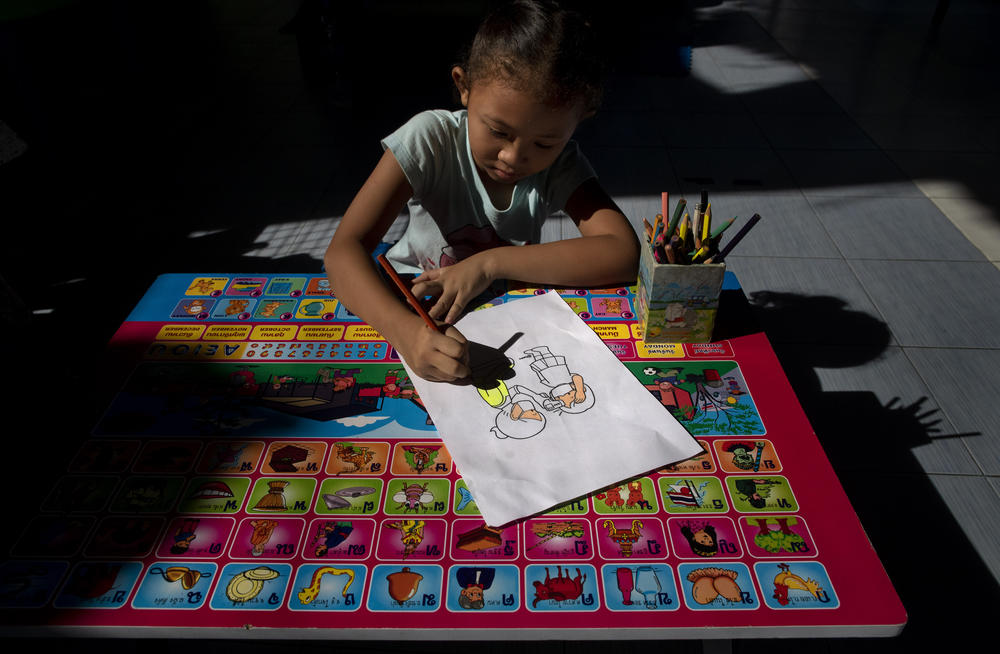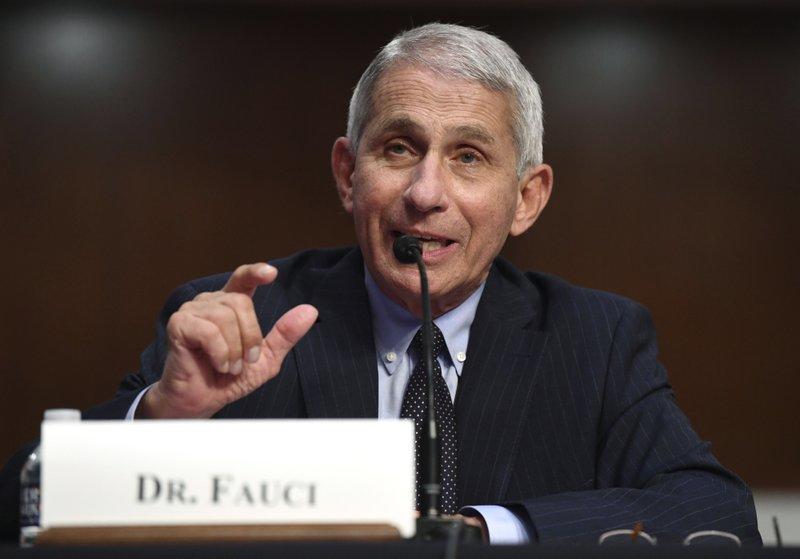Section Branding
Header Content
'Such A Catch-22:' Parents, Teachers Face Agonizing Decisions About Back To School
Primary Content
With all we don’t know about the coronavirus and keeping children safe, returning to school is much like a game of Russian roulette, some parents say.
"It's such a Catch-22 because it's Russian roulette," Meghan Roper said. "We should do what's safe, but then in another sense these kids still have to learn; these parents still have to work."GPB's Ellen Eldridge reports on the tough back-to-school decisions facing students, teachers and parents.
Parents of public school students in Gwinnett County have until July 10 to decide. The choice is between online lessons or in-person classes. Some schools haven’t set any rules.
Roper is both a teacher and a parent in Cherokee County, where officials are waiting to make a final decision. She is keeping a close eye on the rising number of coronavirus cases in Georgia.
“I appreciate the fact that Cherokee is waiting a little bit because of the fact that we don't know what's happening right now," she said. "There's a spike in cases. Who knows if that's going to level off? Who knows if it's going to increase?”
In Fulton County, Superintendent Dr. Mike Looney said the school district can’t responsibly reopen unless the COVID-19 spread is low to moderate, WSB reported.
“We’re going to do everything we can as a district to have school, but in many ways we are absolutely dependent on the community helping slow the spread of this virus so that we can have school,” Looney said.
Pediatricians across the nation are saying they want children to return to school because when students cannot socialize, their development and well-being are at risk.
RELATED: U.S. Pediatricians Call For In-Person School This Fall
The American Academy of Pediatrics said there is a lot of evidence showing young children rarely get or spread COVID-19, but Dr. Anthony Fauci, the country's top infectious disease expert, said the country could see up to 100,000 new cases each day in the near future. Recent testing results have shown more younger people have been infected with coronavirus, raising concerns of them becoming super spreaders of the disease.
Fauci told members of Congress on Tuesday that although he can't predict the ultimate number of infections and deaths related to the coronavirus, "it's going to be very disturbing."
"We can't just focus on those areas that are having the surge. It puts the entire country at risk. We are now having 40-plus thousand new cases a day. I would not be surprised if we go up to 100,000 a day if this does not turn around," he told the Senate Committee on Health, Education, Labor and Pensions, which convened to discuss plans for reopening schools and offices that have been shuttered by the deadly coronavirus pandemic.
Modifying the school schedule so children can attend virtual lessons alongside in-person meetings could be one solution, but for moms like Roper online learning is not an option.
She’s a single parent and her fifth-grade son, Brody, isn’t independent enough to manage distance learning. He has asthma and a neurological disorder. Roper had to decide whether to keep her job teaching her students or dedicate her day to helping Brody.
“If I have to go back, Brody has to go back,” Roper said. “There's not going to be a decision that I'll have to make about that.”
Roper is more concerned about the well-being of her parents, who help with Brody’s care. They are older and more susceptible to falling sick with coronavirus.
"My father within the past year had a stem-cell transplant," Roper said. "So, the (coronavirus) exposure to him is actually greater than what I'm concerned about with Brody."
Monica Arrington is a second-grade teacher at an Atlanta charter school. Leaders at her charter school are looking to Atlanta Public Schools to decide how to move forward in fall.
All she can do is guess about how best to prepare for classes expected to start in August.
Her job as an educator is made more difficult without face-to-face learning because the move from second to third grade is an academically challenging one, and it’s her job to prepare students for that change.
At age 7 or 8, "they're just coming out of really understanding the difference between a concrete concept versus an abstract concept,” she said.
The charter school believes in limiting screen time and focusing on pre-K and kindergarten on fine motor skills and just learning how to be in a classroom, Arrington said. For children at such a young age, Arrington said, she would not recommend distance learning.
“I don't think it would be helpful for the child in the long run unless (the parents are) willing to support them a lot physically in real life,” she said.
And that’s tough for parents who are working, even if they work from home, like Adrienne Duncan and her husband.
Being in the house helps a little bit with child care and homeschooling, “but — we're working,” Duncan said. “And multitasking between job and school is its own job.”
Their three children each attend different schools in a different city around metro Atlanta area.
Duncan’s 9-year-old has autoimmune encephalitis and his care requires the family to travel out of state.
“He needs extra help to learn social skills, but exposure to viruses can send him into a tailspin,” Duncan said.
Duncan’s middle child is in fifth grade. “She's better academically at online school and is a solid part of the community,” Duncan said. “But getting ready for middle school requires a lot of structure.”
And her 14-year-old is beginning her freshman year in high school, “So online learning is a non-starter,” she said.
Whatever schools decide, teachers and parents have little time to prepare or adjust. And the number of COVID-19 cases continues to rise.



